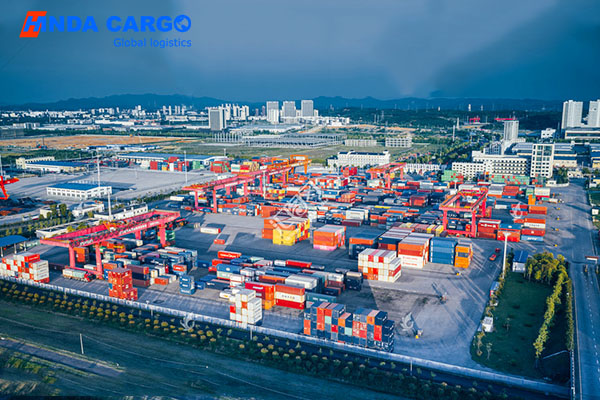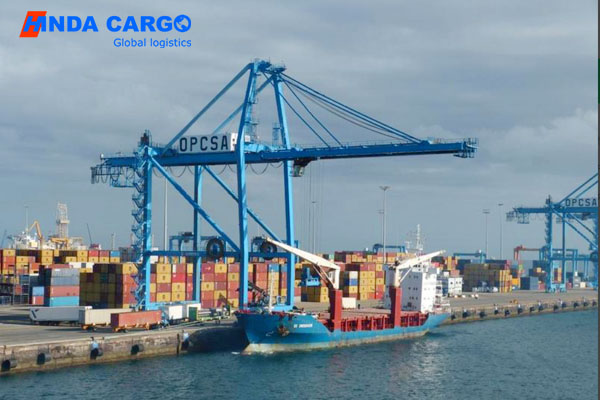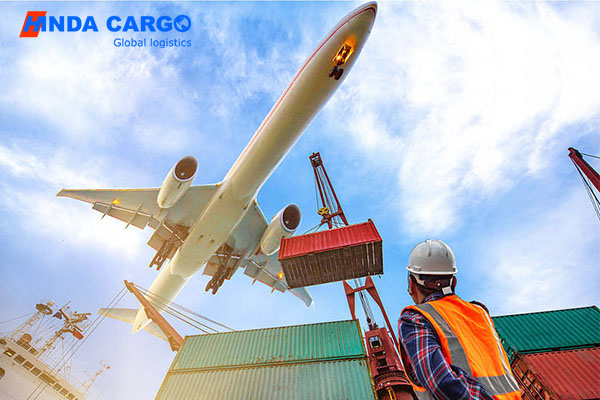What does an international freight forwarder do?
International freight forwarders play a vital role in international trade. They are not only coordinators of cargo transportation, but also key nodes in the international logistics chain.
So, what exactly do international freight forwarders do? How do they help companies and individuals achieve seamless cross-border cargo transportation? This article will explore in depth the functions, roles, and importance of international freight forwarders in global trade.

What is an international freight forwarder?
International freight forwarders, referred to as freight forwarders, refer to companies or individuals who specialize in international freight forwarding services. They provide customers with one-stop logistics solutions including transportation, warehousing, customs declaration, insurance, etc. by integrating and coordinating various logistics resources. Freight forwarders not only play a key role in the physical transportation process, but also provide professional support in logistics management, information communication, and risk control.
What does an international freight forwarder do?
The functions of international freight forwarders are diverse and complex, mainly including: transportation arrangements, customs declaration services, insurance handling, warehousing and distribution, and logistics consulting.
1. Transportation arrangements
International freight forwarders are responsible for selecting and arranging the most suitable transportation methods and routes for customers, including sea, air, land, and multimodal transport. They need to comprehensively consider the nature, quantity, destination and timeliness requirements of the goods to ensure that the goods arrive at the destination safely and on time.
2. Customs declaration service
The import and export of goods involves complex customs procedures. Freight forwarders help customers prepare and submit necessary documents such as commercial invoices, packing lists, bills of lading, etc. through professional customs declaration services to ensure smooth customs clearance of goods and avoid delays and fines.
3. Insurance processing
International freight forwarders assist customers in purchasing freight insurance and provide risk management services. Freight insurance can ensure the safety of goods during transportation and prevent economic losses caused by natural disasters, theft, damage, etc.
4. Warehousing and distribution
Freight forwarders usually own or co-operate warehousing facilities to provide temporary or long-term warehousing services to customers. At the same time, they are also responsible for arranging the distribution of goods to ensure efficient transportation of goods from warehouses to final destinations.
5. Logistics consulting
With rich industry experience and expertise, international freight forwarders provide customers with comprehensive logistics consulting services, including cost control, logistics solution design, supply chain optimization, etc., to help customers improve logistics efficiency and reduce transportation costs.

Workflow of international freight forwarding
The workflow of international freight forwarding includes: customer demand analysis, selection of transportation mode, contract signing, transportation arrangement and document preparation, real-time tracking and information feedback, customs clearance and distribution.
1. Customer demand analysis
First, the freight forwarder communicates with the customer to understand the specific needs of the goods such as type, quantity, destination, delivery period, etc. in detail, and formulates a preliminary transportation plan.
2. Select the mode of transportation
Based on customer needs and the characteristics of the goods, the freight forwarder selects the most suitable mode of transportation and route, and contacts relevant transportation companies (such as shipping companies, airlines, truck companies, etc.) to obtain quotations and capacity support.
3. Signing a contract
After determining the transportation plan and cost, the freight forwarder signs a transportation contract with the customer to clarify the rights and obligations of both parties and ensure the smooth progress of the transportation process.
4. Transportation arrangement and document preparation
The freight forwarder is responsible for arranging the transportation plan, coordinating the resources of all parties, and preparing and reviewing relevant documents (such as bills of lading, customs declarations, insurance policies, etc.) to ensure the accuracy and completeness of the documents.
5. Real-time tracking and information feedback
During the transportation of goods, freight forwarders track the transportation status of goods in real time through advanced logistics management systems, and promptly feedback information to customers to ensure that customers are aware of the dynamics of goods at any time.
6. Customs clearance and distribution
After the goods arrive at the destination, the freight forwarder is responsible for handling customs clearance procedures and arranging subsequent warehousing and distribution services to ensure that the goods are delivered to the final destination safely and on time.
What are the advantages of international freight forwarding?
The advantages of international freight forwarding in global trade and logistics mainly include: professionalism, resource integration, risk management, and flexibility.
1. Professionalism
Freight forwarders have rich industry experience and professional knowledge, and can provide customers with efficient and professional logistics services. They are familiar with international trade rules and customs regulations and can effectively deal with various complex logistics problems.
2. Resource integration
By integrating various logistics resources, freight forwarders can provide customers with a full range of one-stop logistics solutions, thereby improving transportation efficiency and reducing logistics costs.
3. Risk management
Freight forwarders help customers prevent and resolve various risks in the logistics process through a complete risk management system to ensure that goods arrive at their destination safely and on time.
4. Flexibility
Freight forwarders can flexibly adjust transportation plans and logistics strategies according to customer needs, provide personalized services, and meet customers' diverse logistics needs.

The importance of international freight forwarders in global trade
In the context of increasingly frequent and complex global trade, the role of international freight forwarders is becoming more and more important. They are not only the executors of international logistics, but also important participants and promoters of the global supply chain.
1. Promote international trade
Freight forwarders promote the circulation of international goods, reduce trade barriers, and promote the development of global trade by providing efficient logistics services.
2. Optimize supply chain management
Through professional logistics management and supply chain optimization services, freight forwarders help companies improve the flexibility and responsiveness of the supply chain and enhance the market competitiveness of companies.
3. Support cross-border e-commerce
With the rapid development of e-commerce, cross-border e-commerce has become an important part of international trade. Freight forwarders support the development of cross-border e-commerce and enhance consumers' shopping experience by providing fast and reliable logistics services.
4. Ensure global economic stability
In the context of global economic integration, freight forwarders provide important support for the stability and development of the global economy by ensuring the smooth operation of international logistics.
Conclusion
As an important link in the international logistics chain, international freight forwarding plays an indispensable role in global trade with its professionalism, resource integration capabilities and risk management advantages.
Understanding the functions and workflow of international freight forwarding can help companies and individuals better utilize its services and achieve efficient and low-cost international cargo transportation.




